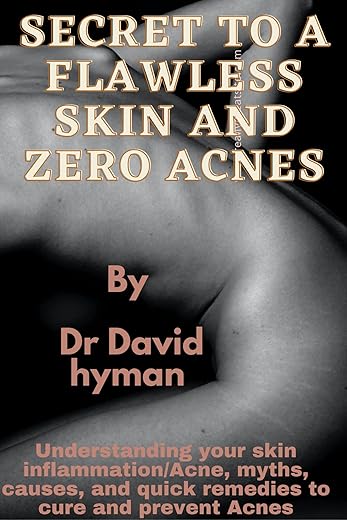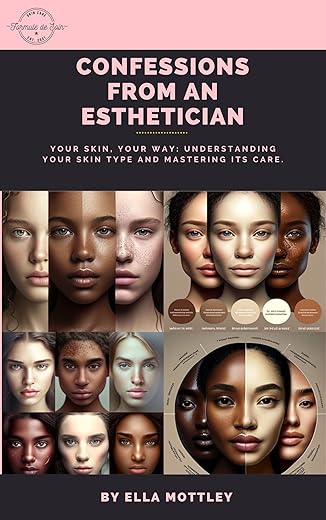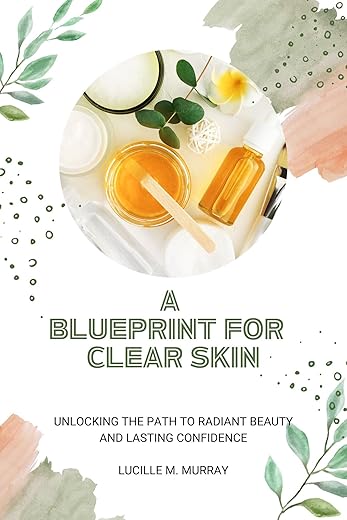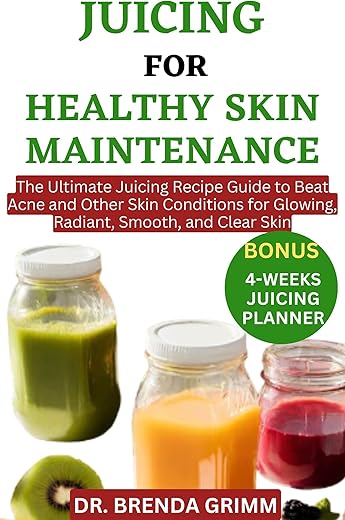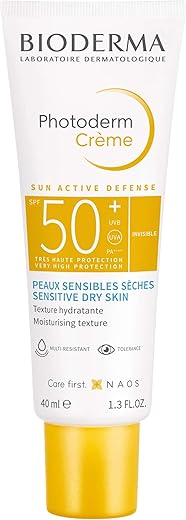Understanding sensitive skin and its needs
Sensitive skin is a condition where one feels an advanced sensitivity to all external factors, either skincare products, environment, or even stress. The symptoms can be redness, itching, burning, dryness, and sometimes breakouts. Setting up a sensitive skin management approach would call for an understanding of the causative elements, hence the critical choice of skincare products.
Key Factors Contributing to Sensitive Skin
Genetics:
Genetic Predisposition: Genetic susceptibility plays a major role in sensitive skin. Individuals whose family members have had skin disorders such as eczema, rosacea, or psoriasis are more prone to sensitive skin. Genetic factors may determine the reaction of the skin after exposure to irritants and how the skin maintains its barrier function.
Skin Barrier Damage:
Barrier Function: The skin barrier consists of a complex structure in terms of lipids and proteins that participate in water retention and protection against aggressions from the environment. Loss of integrity- says the most frequent causes are excessive exfoliation, cleansers, and diseases leading to its sensitization. With a compromised barrier, irritants and allergens can penetrate more easily, which can worsen symptoms.
Loss of Water: The breached barriers often yield way to Trans Epithelial Water Loss, making the skin arid, scaly, and easily inflamed. This, in turn, provides the background for the sensitivity of the skin.
Environmental Factors:
Pollution: Skin irritants, for instance, pollution and toxic chemicals, cause flare-ups of the skin and enhance sensitivity. Such pollutants produce free radicals that kill skin cells and impede the skin barrier protection.
Weather Conditions: Extended exposure to conditions of extreme hot or cold may impact skin hydration and damage the skin barrier. Whereas cold conditions dry the skin out, conditions of heat create an increase in perspiration that may irritate the skin and, therefore, make the skin sensitive.
Sun Exposure: UV radiation from the sun can insult the skin barrier integrity. Its impact is enhanced skin sensitivity. More extended exposure to the sun would cause sunburns and further diminish the skin’s ability to act as a resilient barrier.
Product Ingredients:
Fragrances and Dyes: These are the most common irritants, which may lead to allergic reactions or sensitivity. Such elements in this category disturb the skin’s balance and might cause an adverse reaction in it.
Harsh Surfactants: Like SLS, these ingredients strip the body of skin oils. Gentle, non-foaming surfactants are a better option for sensitive skin.
Preservatives and Alcohol: Some preservatives and high volumes of alcohol can be too harsh on the skin. Therefore, it is quite good to avoid using such preservatives and alcohol if you have sensitive skin to try and avoid irritations.
How to Choose a Face Wash for Sensitive Skin
Choosing the right face wash is one effective way of taking care of sensitive skin. Here’s an explanation that may help you in choosing a product that best suits your skin needs:
Things to Look For in Ingredients
Gentle Surfactants:
Mild Ones: The facial cleansers containing mild surfactants are sodium lauroyl sarcosinate, sodium cocoyl isethionate, and cocamidopropyl betaine. These constituents clean the skin without making it so dry or irritated.
Soothing Ingredients:
Calming Ingredients: Aloe vera, chamomile, calendula, and cucumber are some of the soothing ingredients used. These have anti-inflammatory properties to soothe and pacify irritated skin.
Hyaluronic Acid:
Hyaluronic acid is an active humectant, which clings to moisture and holds it tight. This keeps skin hydrated, as well as acts as a shield against dryness and flakiness.
Ceramides:
Barrier Support: Ceramides are lipids responsible for a series of critical functions in the skin’s barrier. Face washes formulated with ceramides help repair and protect the natural lipid barrier of the skin, thereby making it less sensitive and more resistant against all kinds of attacks.
Antioxidants:
Protective Agents: The ingredients include vitamin C, vitamin E, and green tea; all give antioxidant protection to avoid environmental damage to the skin and deeper tissues and aid in reducing inflammation.
Ingredients to Avoid:
Fragrances:
Fragrance-Free: The artificial fragrance can be one of the biggest culprits for sensitive skin. With their complex chemical composition, they can cause allergic reactions or sensitivity. Even products promoted as “fragrance-free” have fragrances added in order to neutralize other odors. As safe as it gets, choose only those with explicit labeling like “free from fragrance” or “hypoallergenic,” and always go through ingredient lists to ensure there’s nothing about scents.
Dyes:
No Artificial Colors: Artificial dyes or colorants are added to skincare products in order to beautify them but can be quite sensitive to your skin. These dyes irritate your skin by causing some sort of allergic reaction or, worse, flare-ups of skin conditions such as eczema. So, look for wording in a face wash that says something like “free from artificial colors” or “colorant-free.” Such products are less likely to irritate your skin. Many products that have not been colored have a natural, uncolored look and feel; thus, they are further soft on the skin.
Alcohol:
Avoid drying effects: Alcohol has a certain drying effect on the skin, and indeed that is much more problematic if one has a sensitive skin type. This takes away the skin’s natural oils encourages further dryness and irritation of the skin, and may also lead to disruption of the skin barrier. Seek out products labeled “alcohol-free” or “no ethanol.” The cleanser should not contain strong ingredients. It should have a gentle and moisturizing formula that keeps the skin hydrated and does not further aggravate sensitive skin conditions.
Scrubs and Exfoliants:
Mild Action: Physical exfoliants containing scrubbing particles or brushes tend to be too harsh on sensitive skin. This could lead to micro-tears or further inflammation, which, in turn, may result in more serious irritations. Instead, switch to face cleansers that offer a non-abrasive, gentle cleansing action. If one needs to exfoliate, use chemical exfoliants containing mild, non-irritating acids-like lactic or mandelic acid-in very low concentrations. Always do a patch test to check the product’s compatibility with sensitive skin.
Sulfates:
Gentle Options: Most cleansers contain sulfates, a form of surfactant. Examples include sodium lauryl sulfate, often referred to as SLS, and sodium laureth sulfate, otherwise known as SLES. The former creates a foamy effect but is too stripping for sensitive skin and may thus cause irritation. Go for sulfate-free cleansers that use milder surfactants to clean the skin without taking away its natural moisture balance.
Parabens:
Paraben-Free: These are chemical preservatives used in products to prolong the life of products. Preservatives, however, such as parabens have been associated with possible irritation within sensitive skin and also alter the hormonal balance. You should choose facial cleansers labeled “paraben-free” so that they will minimize adverse reactions with skin sensitivity and lessen the number of synthetic chemicals that come in contact with your skin.
Essential Oils:
Essential oils, despite being natural products, may irritate sensitive skin. Sensitivity may be caused by strong perfumes or active ingredients. In case of preference for the application of products with essential oils, one has to be ready for sensitive skin at a very low concentration.
Avoiding these ingredients and using products designed to be gentle and non-irritating will go a long way in managing sensitive skin and reducing potential reactions. Always pay attention to the ingredient labels and, when necessary, the advice of dermatologists to ensure your choice of skincare products will be based on your skin’s unique needs.
Recommended Face Wash Brands for Sensitive Skin
Cetaphil
Cetaphil has always been one of the trusted brands when it comes to sensitive skin, and their formula allows for cleaning without stripping the skin of its oils, preventing dryness and irritation. Below are some of their most well-liked products:
Cetaphil Gentle Skin Cleanser: This classic cleanser stays dermatologist’s favorite because it is gentle and effectively performs with regard to taking away dirt and oil from the skin while not affecting its barrier.
Cetaphil Moisturizing Cream: Not a face wash, per se, but is generally used in concert with the above cleanser for extended hydration and soothing of highly sensitive skin.
La Roche-Posay
La Roche-Posay is a French skincare brand that has become well-known for its line of sensitive skin and reactive skin care products. Many of their products boast thermal spring water, which can help to soothe the skin and is anti-inflammatory in nature. Some popular choices include:
Toleriane Dermo-Cleanser: This is a soft cleanser indicated, even for very sensitive skin types; it manages to take care of impurities without causing any irritation.
Anthelios Sunscreen: La Roche-Posay has several sunscreens for sensitive skins that offer broad-spectrum protection from damaging UV rays.
Aveeno
Aveeno is known for incorporating natural ingredients into its products, especially oatmeal, a soothing agent. Therefore, their products are generally harmless and suitable for sensitive skin. Some of your options will be:
Aveeno Calm Skin Cleanser: Incorporating oat extract, this cleanser can be used to soothe and calm irritated skin.
Aveeno Daily Moisturizing Lotion: This hydrating lotion can be used in accompaniment to the above cleanser for relief from dryness and itching.
Cerave
Cerave as a brand focuses on replenishing the skin’s natural ceramides, which are very important for a healthy skin barrier. Their products are thus best for sensitive skin that may easily be dried out or irritated. Some of the best choices include:
Cerave Hydrating Cleanser: This cleanser cleans the skin so well to help to restore the skin’s protective barrier.
Cream: The Rich cream for long-lasting hydration; it strengthens the skin’s barrier.
Simple
This is a brand that boasts of a minimum approach to care for the skin. The products have a minimal number of ingredients, which means that this reduces the possibility of irritation. Some of its Popular options include:
Simple Kind to Skin Facial Wash gentle cleanser even for sensitive skin types.
Simple Micellar Cleansing Water: This cleaning water is an easy and efficient make-up remover and cleanser that doesn’t involve aggressive rubbing.
Additional Tips For Sensitive Skin
Patch Test:
Try New Products on Small Areas: Always do a patch test on a small area of the skin before trying a new product. This will be able to help you realize if you have anything that may cause irritation and allow you to avoid generalized reactions.
Limit Product Use:
Simplify Your Routine: Keep your skincare routine as simple as possible, and that way you can avoid loading up on products on your skin. Stick to the very basics like cleanser, moisturizer, and sunscreen to minimize the risks of irritation.
Protect from the Sun:
Daily Sunscreen: Broad-spectrum sunscreen containing physical blockers such as zinc oxide or titanium dioxide helps protect your skin from injurious UV rays. Generally speaking, physical sunscreens tend to be more agreeable to sensitive skin than chemical sunscreens.
Avoid Hot Water:
Lukewarm Washing: Hot water can be drying and may further provoke sensitive skin. For that matter, one should use lukewarm water for washing the face to avoid much discomfort.
Hydrate:
Drink Water: Skin is a vital organ of the body that requires good hydration for its health. Take ample water and help your skin maintain moisture from the inside. It goes without saying that sensitive skin requires special care and attention to its needs so that it can be healthy and comfortable.
You can therefore address the key factors that have to do with genetics, damaged skin barriers, environmental factors, and sensitivity to certain ingredients. You can manage and soothe sensitive skin through this. Choose the correct face wash containing gentle, soothing, protective ingredients that do not include known irritants. Individual reactions may differ, so what works for another person might not work for you.


![Deep Work: Rules for Focused Success in a Distracted World [Paperback] Newport, Cal](https://beauty.truereviewsonline.com/wp-content/uploads/2024/09/deepworkrulesforfocusedsuccessinadistractedworldpaperback.jpg)

